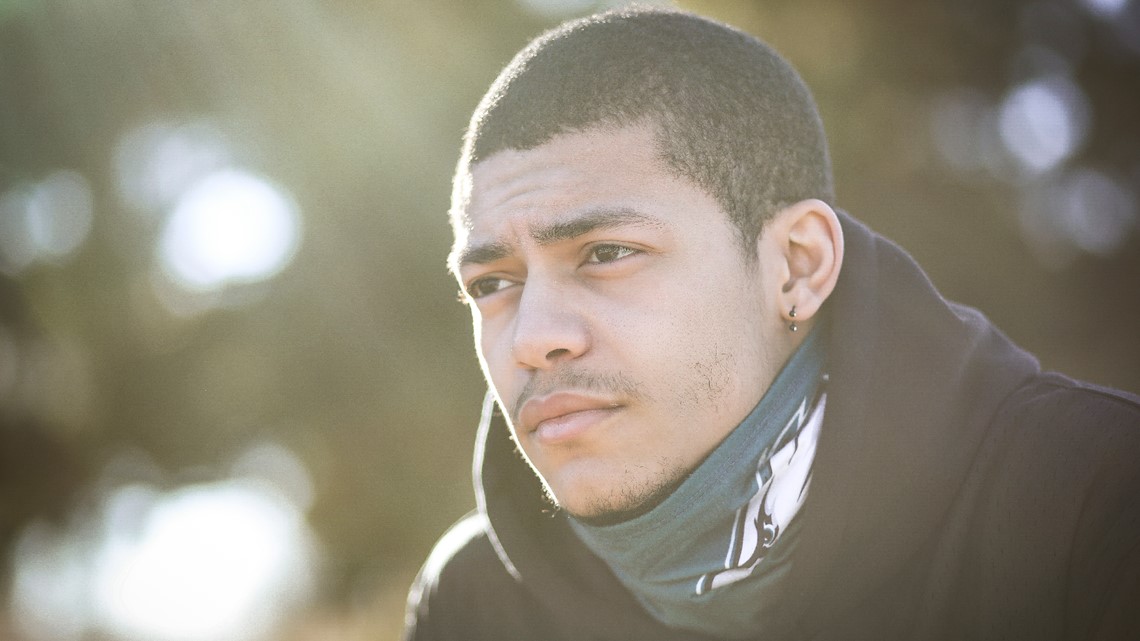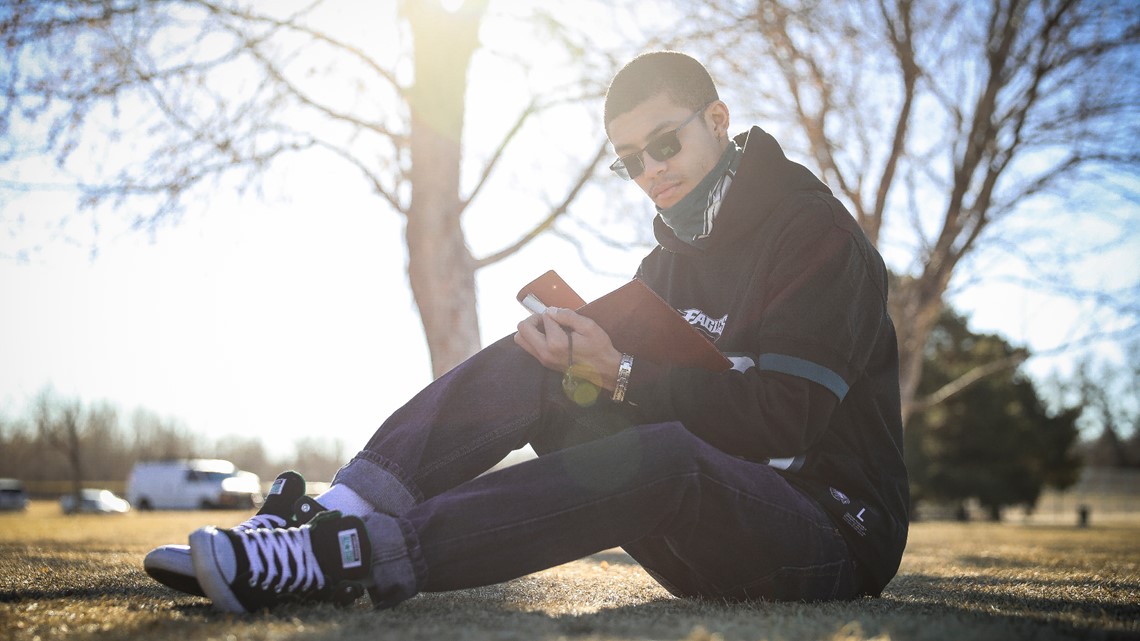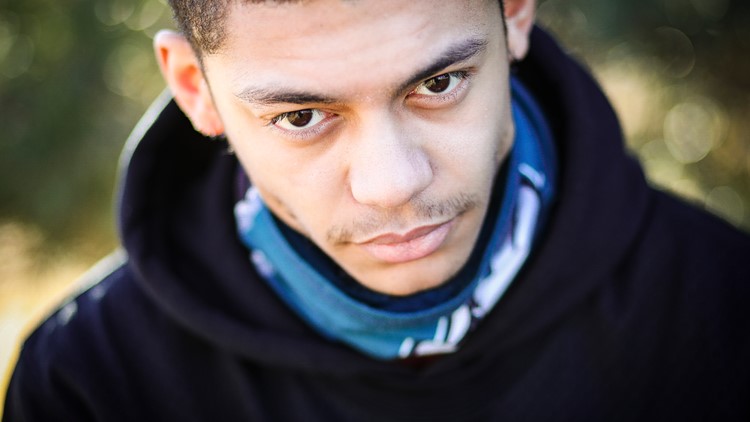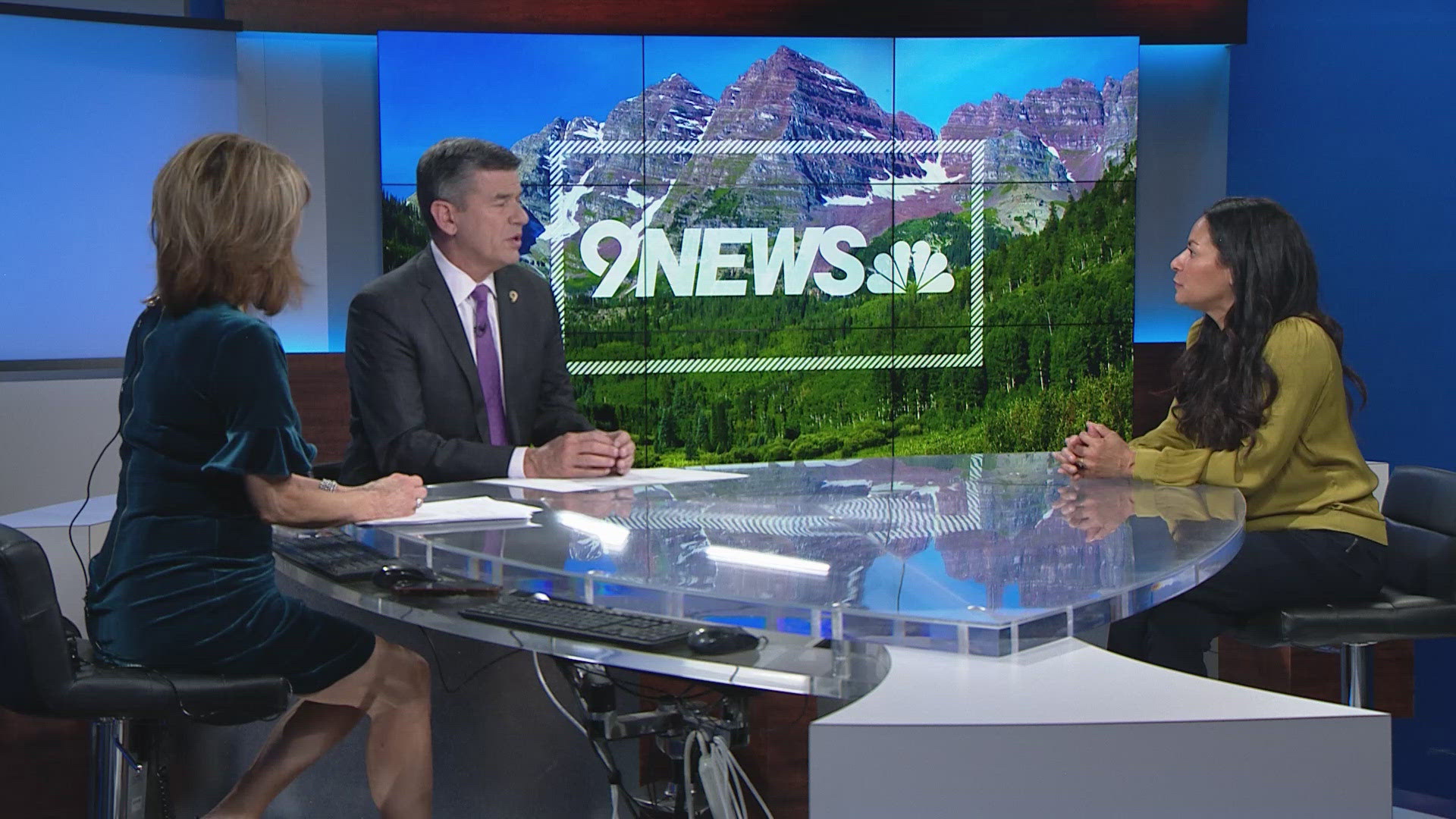DENVER — Tylan Jones is not naive. He is a 20-year-old Black man living in the United States. This reality does not easily accommodate naivete.
When he was in middle school, he says, he and some Black friends got off the bus in their east Denver neighborhood and an “old white lady” came out of her house to declare she had no use for “monkeys” as neighbors.
When he was 15, he says, Denver police pulled over a car in which he was a passenger and then asked only him, the sole Black kid in the group, for ID. While he was digging in his backpack for it, he heard an officer unsnap the holster strap holding his gun. It stayed holstered, but Jones still thinks about the sudden, sharp potential of the moment: that a cop might have shot and killed him.
No, he’s not naive.
But neither is Jones jaded. He talks about himself instead as a clear-eyed optimist. A believer that the good will outweigh the bad, that a society can be just and equitable, and that he can and will play a role, even if it’s a small one, in the ushering in of that future.
“No matter how bad things will get, I want to make something somewhere a better place for somebody I care about,” he says.


But that flame of hope inside him hasn’t been easy to keep burning. Jones grappled with anxiety and panic attacks even before this past year’s onslaught of stressors. COVID, unemployment, death after death of Black men and women at the hands of police nationwide, the relentless weight of “being judged and mistreated because you fit a description” fed a battle within him: The idealist fighting disillusionment, the optimist going toe-to-toe with the pessimist.
The pessimist watched a police officer slowly suffocate George Floyd to death. The pessimist heard then-President Trump say on Twitter “when the looting starts, the shooting starts” during the Black Lives Matter protests of the spring and heard equally loudly Trump’s silence as his supporters, nearly all of them white, violently overran the nation’s Capitol in mid-January.
“I try to be open-minded. I try to see other people’s perspective. But you can legit see how people are being treated differently,” Jones says. “The more I see, the more open my eyes get, the more I hear, the better I understand how certain things are in the world. It’s just such a hypocritical world...
“It pisses me off a little bit. Not a little bit, actually. A lot.”
Don’t let it get to you, his father has advised over the years. That’s no easy thing for Jones. When a panic attack hits, he wrote in a poem, “it hits hard taking my breath, making my mind go way into depth. I start to shake uncontrolled once that happens I leave and keep my eyes closed. Take deep breaths, I say, hoping it will work today.”


He dropped out of school in 2018 one semester shy of graduating, and went to work in restaurants. During the pandemic, he lost his kitchen job and went back to school, taking classes online, collecting unemployment until it ran out and a low-level panic set in.
“I felt useless, like I didn’t have anything to do in life,” he says. “Yeah, I did school, but I need to make money, I need to pay things, I need to make sure that if I can help out in the house, I can help out.”
He had too much time on his hands and “if I have too much time on my hands I start thinking about so many things that have gone wrong in my life.”
A doctor had prescribed him anxiety meds, he says, but they make him lethargic so he doesn’t take them. He’s picked up vaping and when really overwhelmed, withdraws into his room, playing video games.
“I stay off social media. The only people I stay in contact with are my family. I can go days, weeks, even months without talking to people. My friends understand. They try to get me to kick with them, but I don’t respond to group chat messages. I put everything on mute and disappear from the world for a little bit.”
Early one December morning, when the apartment was quiet and his father asleep, Jones went into a tailspin of self-doubt and self-recrimination. He says he couldn't stop thinking about how he dropped out of school, about his parents’ divorce, about how he’s a terrible role model to his three younger brothers. He pulled out his phone and started writing:
“I need help but I cant ask ...
I cant help but hide my emotions even when I feel broken
I cant help but smile even when I get nothing but denial
I dont mean someone telling me no just tired of life looking at me with shit it throws
I honestly don't know what to do if you read this I'm asking you.”
Writing poetry helps ground him, he says.
“I really don’t like talking about my emotions and this was an outlet,” he says. “I want to show people that we all go through struggles, some more than others. I want people to know, you are not alone, even if you don’t want to talk about what you are going through, you are not alone.”
This is the optimist speaking, the person who believes words — the right words at the right time — can be a bridge among people, spanning racial conflict, spanning generational divides. It is the optimist who talks now about going to college, who looks back at last year’s Black Lives Matter protests — not just as a Black man, but as an Afro-Latino — and thinks of the “kids of all different races, nationalities, genders” he saw there. “Some of the things they said, it touched my heart, you know, and it proved to me right then and there that we are not born to hate.”
So, Jones carries that with him. He’s trying to more squarely face his anxiety, and, as he wrote in a recent poem, “if you have anxiety, maybe you can understand me and I you.” He just found a job as a dishwasher, has finished high school and will graduate in May.
He feels good, he says. Determined. Optimistic.
---
If you’re struggling, help is available on Colorado’s crisis hotline. Call 1-844-493-TALK(8255)
This story is part of a statewide reporting project from the Colorado News Collaborative called On Edge. This project is supported in part by the Rosalynn Carter Fellowship for Mental Health Reporting and a grant honoring the memory of the late Benjamin von Sternenfels Rosenthal. Our intent is to foster conversation about mental health in a state where stigma runs high.
tina@colabnews.co
SUGGESTED VIDEOS: Local stories from 9NEWS



